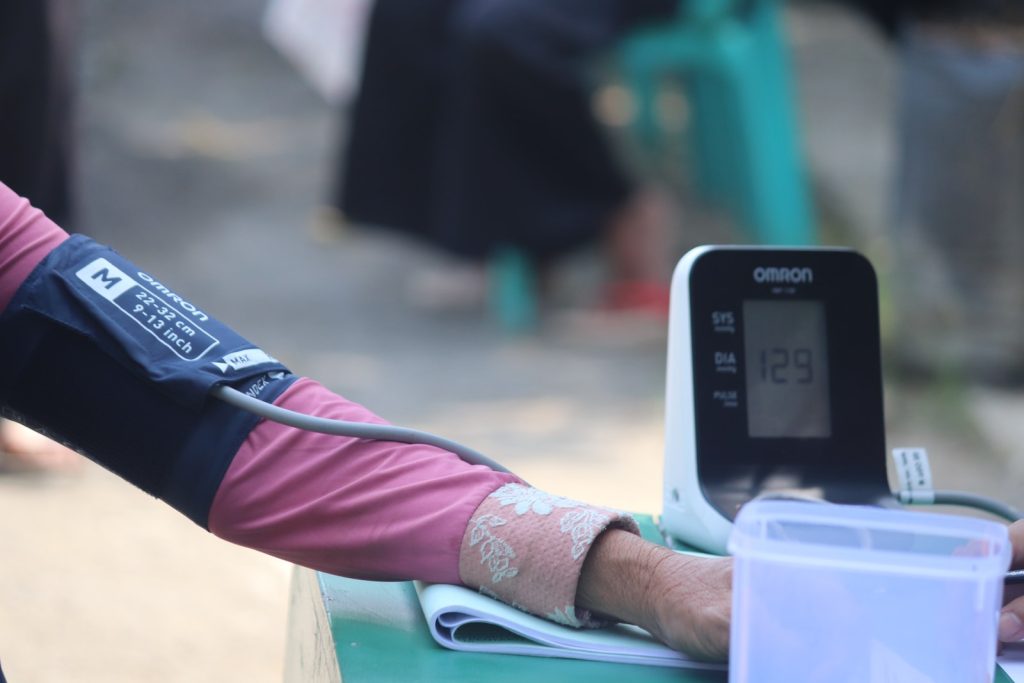Health Check
A neccessary step before donating blood is to undergo a health check before you can proceed. This is to ensure that you are eligible and healthy enough to donate, and that your blood is safe for the recipients. In this blog post, we will explain what the health check involves and why it is important. The health check consists of screening for your blood type, hemoglobin level, blood pressure, pulse, temperature, and medical history. Here is what each of these tests means:

Blood Type
Your blood type is determined by the presence or absence of certain antigens on your red blood cells. There are four main blood types: A, B, AB, and O. Each blood type can be positive or negative, depending on the presence or absence of another antigen called Rh factor. Knowing your blood type is important because you can only donate to people who have compatible blood types with yours. For example, if you have type A positive blood, you can donate to people who have type A positive or AB positive blood, but not to people who have type B or O blood.
Hemoglobin level
Hemoglobin is a protein in your red blood cells that carries oxygen throughout your body. Having a normal hemoglobin level is essential for your health and well-being. If your hemoglobin level is too low, you may have anemia, which can cause fatigue, weakness, and shortness of breath. If your hemoglobin level is too high, you may have polycythemia, which can increase the risk of blood clots and strokes. The normal range of hemoglobin level for men is 13.5 to 17.5 grams per deciliter (g/dL), and for women is 12.0 to 15.5 g/dL. To donate blood at LAPM, you need to have a hemoglobin level of at least 12.5 g/dL for men and 11.0 g/dL for women.


Blood Pressure
Blood pressure is the force of your blood pushing against the walls of your arteries. Having a normal blood pressure is important for preventing heart disease, stroke, and kidney damage. The normal range of blood pressure for adults is less than 120/80 millimeters of mercury (mmHg). The first number (systolic) measures the pressure when your heart beats, and the second number (diastolic) measures the pressure when your heart rests between beats. To donate blood at LAPM, you need to have a blood pressure between 90/50 mmHg and 180/100 mmHg.
- Pulse: Pulse is the number of times your heart beats per minute. Having a normal pulse rate is important for maintaining a healthy circulation and rhythm of your heart. The normal range of pulse rate for adults is 60 to 100 beats per minute (bpm). To donate blood at LAPM, you need to have a pulse rate between 50 and 100 bpm.
- Temperature: Temperature is a measure of how hot or cold your body is. Having a normal temperature is important for regulating your metabolism and immune system. The normal range of temperature for adults is 97.8 to 99.1 degrees Fahrenheit (36.5 to 37.3 degrees Celsius). To donate blood at LAPM, you need to have a temperature below 99.5 degrees Fahrenheit (37.5 degrees Celsius).
- Medical history: Medical history is a record of your past and present health conditions, medications, allergies, surgeries, vaccinations, and lifestyle habits. Having an accurate and complete medical history is important for identifying any potential risks or complications that may arise from donating blood or receiving blood transfusions. To donate blood at LAPM, you need to answer a series of questions about your medical history honestly and thoroughly.
The health check takes about 10 to 15 minutes to complete and is performed by a trained staff member at LAPM. It is confidential and free of charge. You will receive a donor card with your blood type and other information after the health check. Donating blood at LAPM is a safe and rewarding way to help save lives and improve the health of others in need. By undergoing a health check before donating, you are ensuring that you are fit and ready to give the gift of life.

